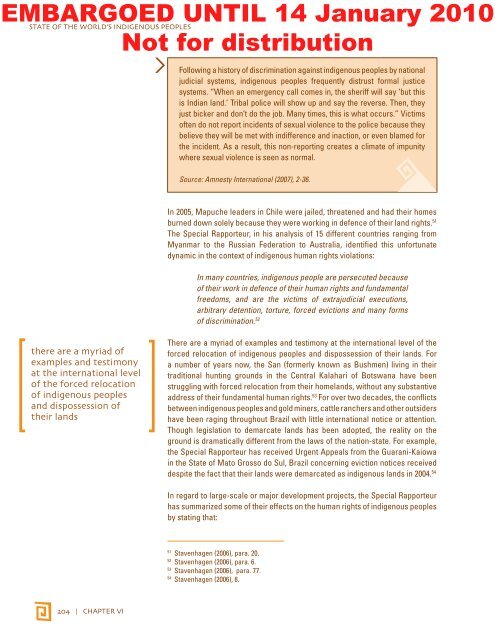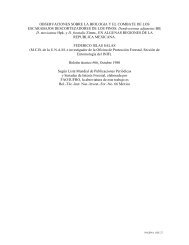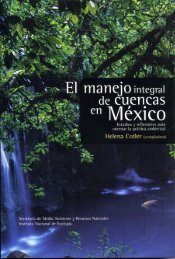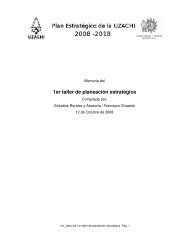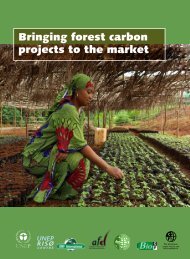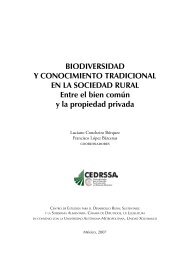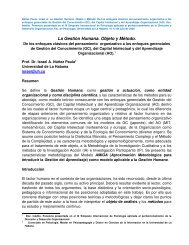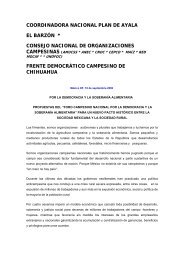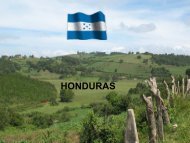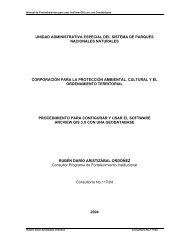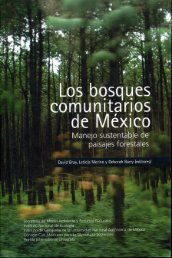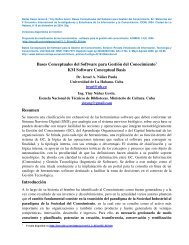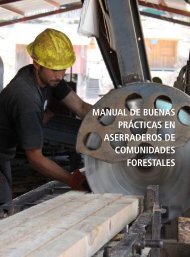- Page 1 and 2:
EMBARGOED UNTIL 14 January 2010Not
- Page 3 and 4:
EMBARGOED UNTIL 14 January 2010STAT
- Page 5 and 6:
EMBARGOED UNTIL 14 January 2010Not
- Page 7 and 8:
EMBARGOED UNTIL 14 January 2010Not
- Page 9 and 10:
EMBARGOED UNTIL 14 January 2010STAT
- Page 11 and 12:
EMBARGOED UNTIL 14 January 2010STAT
- Page 13 and 14:
EMBARGOED UNTIL 14 January 2010STAT
- Page 15 and 16:
EMBARGOED UNTIL 14 January 2010STAT
- Page 17 and 18:
EMBARGOED UNTIL 14 January 2010STAT
- Page 19 and 20:
EMBARGOED UNTIL 14 January 2010STAT
- Page 21 and 22:
EMBARGOED UNTIL 14 January 2010STAT
- Page 23 and 24:
EMBARGOED UNTIL 14 January 2010Not
- Page 25 and 26:
EMBARGOED UNTIL 14 January 2010STAT
- Page 27 and 28:
EMBARGOED UNTIL 14 January 2010STAT
- Page 29 and 30:
EMBARGOED UNTIL 14 January 2010STAT
- Page 31 and 32:
EMBARGOED UNTIL 14 January 2010STAT
- Page 33 and 34:
EMBARGOED UNTIL 14 January 2010STAT
- Page 35 and 36:
EMBARGOED UNTIL 14 January 2010STAT
- Page 37 and 38:
EMBARGOED UNTIL 14 January 2010STAT
- Page 39 and 40:
Bolivia Ecuador Guatemala Mexico Pe
- Page 41 and 42:
EMBARGOED UNTIL 14 January 2010STAT
- Page 43 and 44:
EMBARGOED UNTIL 14 January 2010STAT
- Page 45 and 46:
EMBARGOED UNTIL 14 January 2010STAT
- Page 47 and 48:
EMBARGOED UNTIL 14 January 2010STAT
- Page 49 and 50:
EMBARGOED UNTIL 14 January 2010STAT
- Page 51 and 52:
EMBARGOED UNTIL 14 January 2010STAT
- Page 53 and 54:
EMBARGOED UNTIL 14 January 2010STAT
- Page 55 and 56:
EMBARGOED UNTIL 14 January 2010STAT
- Page 57 and 58:
EMBARGOED UNTIL 14 January 2010STAT
- Page 59 and 60:
EMBARGOED UNTIL 14 January 2010STAT
- Page 61 and 62:
EMBARGOED UNTIL 14 January 2010Not
- Page 63 and 64:
EMBARGOED UNTIL 14 January 2010STAT
- Page 65 and 66:
EMBARGOED UNTIL 14 January 2010STAT
- Page 67 and 68:
EMBARGOED UNTIL 14 January 2010STAT
- Page 69 and 70:
EMBARGOED UNTIL 14 January 2010STAT
- Page 71 and 72:
EMBARGOED UNTIL 14 January 2010STAT
- Page 73 and 74:
EMBARGOED UNTIL 14 January 2010STAT
- Page 75 and 76:
EMBARGOED UNTIL 14 January 2010STAT
- Page 77 and 78:
EMBARGOED UNTIL 14 January 2010STAT
- Page 79 and 80:
EMBARGOED UNTIL 14 January 2010STAT
- Page 81 and 82:
EMBARGOED UNTIL 14 January 2010STAT
- Page 83 and 84:
EMBARGOED UNTIL 14 January 2010STAT
- Page 85 and 86:
EMBARGOED UNTIL 14 January 2010STAT
- Page 87 and 88:
EMBARGOED UNTIL 14 January 2010STAT
- Page 89 and 90:
EMBARGOED UNTIL 14 January 2010STAT
- Page 91:
EMBARGOED UNTIL 14 January 2010STAT
- Page 94 and 95:
EMBARGOED UNTIL 14 January 2010STAT
- Page 96 and 97:
EMBARGOED UNTIL 14 January 2010STAT
- Page 98 and 99:
EMBARGOED UNTIL 14 January 2010STAT
- Page 100 and 101:
EMBARGOED UNTIL 14 January 2010STAT
- Page 102 and 103:
EMBARGOED UNTIL 14 January 2010STAT
- Page 104 and 105:
EMBARGOED UNTIL 14 January 2010STAT
- Page 106 and 107:
EMBARGOED UNTIL 14 January 2010STAT
- Page 108 and 109:
EMBARGOED UNTIL 14 January 2010STAT
- Page 110 and 111:
EMBARGOED UNTIL 14 January 2010STAT
- Page 112 and 113:
EMBARGOED UNTIL 14 January 2010STAT
- Page 114 and 115:
EMBARGOED UNTIL 14 January 2010STAT
- Page 116 and 117:
EMBARGOED UNTIL 14 January 2010STAT
- Page 118 and 119:
EMBARGOED UNTIL 14 January 2010STAT
- Page 120 and 121:
EMBARGOED UNTIL 14 January 2010STAT
- Page 122 and 123:
EMBARGOED UNTIL 14 January 2010STAT
- Page 124 and 125:
EMBARGOED UNTIL 14 January 2010STAT
- Page 126 and 127:
EMBARGOED UNTIL 14 January 2010STAT
- Page 128 and 129:
EMBARGOED UNTIL 14 January 2010STAT
- Page 130 and 131:
EMBARGOED UNTIL 14 January 2010STAT
- Page 132 and 133:
EMBARGOED UNTIL 14 January 2010STAT
- Page 134 and 135:
EMBARGOED UNTIL 14 January 2010STAT
- Page 136 and 137:
EMBARGOED UNTIL 14 January 2010STAT
- Page 138 and 139:
EMBARGOED UNTIL 14 January 2010STAT
- Page 140 and 141:
EMBARGOED UNTIL 14 January 2010STAT
- Page 142 and 143:
EMBARGOED UNTIL 14 January 2010STAT
- Page 144 and 145:
EMBARGOED UNTIL 14 January 2010STAT
- Page 146 and 147:
EMBARGOED UNTIL 14 January 2010STAT
- Page 148 and 149:
EMBARGOED UNTIL 14 January 2010STAT
- Page 150 and 151:
EMBARGOED UNTIL 14 January 2010STAT
- Page 152 and 153:
EMBARGOED UNTIL 14 January 2010STAT
- Page 154 and 155:
EMBARGOED UNTIL 14 January 2010STAT
- Page 156 and 157:
EMBARGOED UNTIL 14 January 2010STAT
- Page 158 and 159:
EMBARGOED UNTIL 14 January 2010STAT
- Page 160 and 161:
EMBARGOED UNTIL 14 January 2010STAT
- Page 162 and 163:
EMBARGOED UNTIL 14 January 2010STAT
- Page 164 and 165: EMBARGOED UNTIL 14 January 2010STAT
- Page 166 and 167: EMBARGOED UNTIL 14 January 2010STAT
- Page 168 and 169: EMBARGOED UNTIL 14 January 2010STAT
- Page 170 and 171: EMBARGOED UNTIL 14 January 2010STAT
- Page 172 and 173: EMBARGOED UNTIL 14 January 2010STAT
- Page 174 and 175: EMBARGOED UNTIL 14 January 2010STAT
- Page 176 and 177: EMBARGOED UNTIL 14 January 2010STAT
- Page 178 and 179: EMBARGOED UNTIL 14 January 2010STAT
- Page 180 and 181: EMBARGOED UNTIL 14 January 2010STAT
- Page 182 and 183: EMBARGOED UNTIL 14 January 2010STAT
- Page 184 and 185: EMBARGOED UNTIL 14 January 2010STAT
- Page 186 and 187: EMBARGOED UNTIL 14 January 2010STAT
- Page 188 and 189: EMBARGOED UNTIL 14 January 2010STAT
- Page 190 and 191: EMBARGOED UNTIL 14 January 2010STAT
- Page 192 and 193: EMBARGOED UNTIL 14 January 2010STAT
- Page 194 and 195: EMBARGOED UNTIL 14 January 2010STAT
- Page 196 and 197: EMBARGOED UNTIL 14 January 2010STAT
- Page 198 and 199: EMBARGOED UNTIL 14 January 2010STAT
- Page 200 and 201: EMBARGOED UNTIL 14 January 2010STAT
- Page 202 and 203: EMBARGOED UNTIL 14 January 2010STAT
- Page 204 and 205: EMBARGOED UNTIL 14 January 2010STAT
- Page 206 and 207: EMBARGOED UNTIL 14 January 2010STAT
- Page 208 and 209: EMBARGOED UNTIL 14 January 2010STAT
- Page 210 and 211: EMBARGOED UNTIL 14 January 2010STAT
- Page 212 and 213: EMBARGOED UNTIL 14 January 2010STAT
- Page 216 and 217: EMBARGOED UNTIL 14 January 2010STAT
- Page 218 and 219: EMBARGOED UNTIL 14 January 2010STAT
- Page 220 and 221: EMBARGOED UNTIL 14 January 2010STAT
- Page 222 and 223: EMBARGOED UNTIL 14 January 2010STAT
- Page 224 and 225: EMBARGOED UNTIL 14 January 2010STAT
- Page 226 and 227: EMBARGOED UNTIL 14 January 2010STAT
- Page 228 and 229: EMBARGOED UNTIL 14 January 2010STAT
- Page 230 and 231: EMBARGOED UNTIL 14 January 2010STAT
- Page 232 and 233: EMBARGOED UNTIL 14 January 2010STAT
- Page 234 and 235: EMBARGOED UNTIL 14 January 2010STAT
- Page 236 and 237: EMBARGOED UNTIL 14 January 2010STAT
- Page 238 and 239: EMBARGOED UNTIL 14 January 2010STAT
- Page 240 and 241: EMBARGOED UNTIL 14 January 2010STAT
- Page 242 and 243: EMBARGOED UNTIL 14 January 2010STAT
- Page 244 and 245: EMBARGOED UNTIL 14 January 2010STAT
- Page 246 and 247: EMBARGOED UNTIL 14 January 2010STAT
- Page 248 and 249: EMBARGOED UNTIL 14 January 2010STAT
- Page 250: EMBARGOED UNTIL 14 January 2010Not


